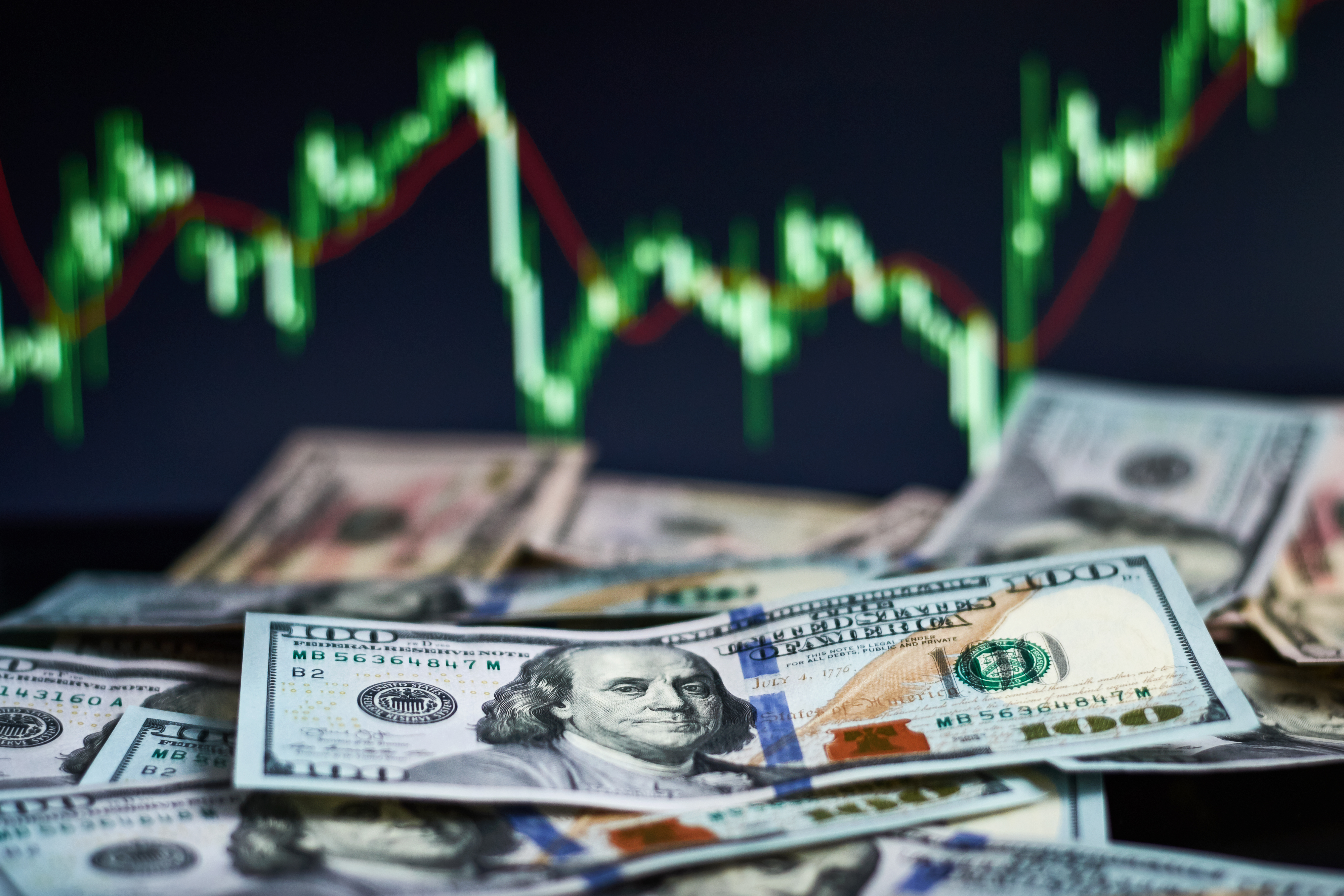Index Funds vs. ETFs: What They Are And How They Work
Years ago, investors bought and sold stocks in individual companies, often trying to beat the market’s average return. Then, in the early 20th...
Apply for an Auto Loan without ever stepping foot in a branch.
From auto loans to refinancing a mortgage, WEOKIE has the resources and tools to create a lending program tailored to your needs.
At WEOKIE, our purpose is to build strong communities by supporting financial growth and well-being, one person at a time.
By: WEOKIE Federal Credit Union on Jun 21, 2023

Have you ever noticed that sometimes for months-long stretches, the stock market takes investors on a roller-coaster ride, when other economic indicators — like a steady jobs market or the GDP — seem fairly strong? Or, vice versa, the economy may look to be a bit of a downer, but the market is on a roll? It actually happens all the time. And the reason, experts explain, is because the stock market is not the economy. In fact, the real mistake we make is expecting them to move in sync.
Still, while a majority of working Americans have a stake in the stock market through their 401(k)s and IRAs, when it comes to overall economic outlooks, not everyone focuses on how the stock market stands to guide their thinking. Data from the Pew Research Center shows that more than 40% of U.S. adults looked to income (48%), employment opportunities (45%) and the cost of medical care (43%) as playing a major role in how they think the economy is doing overall. Meanwhile, 25% or less cited the stock market as significantly shaping their view of the economy, according to Pew Research Center data. (In other words, the majority of us intuitively know that the stock market is just one piece of our economy.)
One Slice Of The Pie
Why is that, exactly? For starters, the stock market consists solely of publicly-traded companies. These represent just a small subset of the total number of employers in the U.S. economy, explains Veteran economist Greg McBride, who serves as chief financial analyst for Bankrate. “Also, publicly-traded companies tend to skew a little bit toward larger businesses, so that’s going to exclude many entrepreneurs and small businesses where as many as half of American workers work,” McBride says. So when you look at the markets, you’re not getting the full economic picture, just a part of it.
Additionally, the stock market is a leading indicator. “The stock market is forward-looking,” he explains. “Stock prices reflect future corporate profits and the conditions that affect that. So, the stock market is often a leading indicator for the economy.” Many other economic indicators — like unemployment and corporate profits — are lagging indicators. In other words, they tell us what has already happened. That’s why during an economic downturn, you may see the stock market rebound in anticipation of economic recovery that may be on the horizon, even while conditions on the ground are still bad.
What happened during the pandemic is a great example of this. McBride explains: “The stock market started to fall in February of 2020 and was down 34% in a little over a month. And most of that came while we were all jumping in the car and driving to work. Once everything was locked down and we were all sheltering in place at home, that’s when the stock market started to rebound. So, the stock market fell in anticipation of the economic impact from the pandemic well before that actually happened. But then it also started to rise in anticipation of an economic rebound, even while we were all still quarantining.”
Is The Stock Market Ever Wrong With Its Predictive Powers?
Complicating matters, the stock market sometimes reads the tea leaves incorrectly. “That’s why stock values fluctuate as they do,” McBride says. “Prices anticipate future conditions, but if those conditions are worse than expected, the markets are going to fall more. If those conditions are better than expected, the markets rally, sometimes quite strongly.”
So, How Do You React As An Investor?
How do you play these market moves? In the best of all possible worlds, you don’t. Many people try to time the stock market based on economic indicators, or try to invest in big winners in particular sectors, depending on how that sector is trending. But McBride’s wise advice is not to bother.
This is an important lesson for the millions of Americans whose future lives — i.e. their retirements — are sheltered in 401(k)s, IRAs and other retirement accounts. “The stock market impacts a bigger portion of the population than most people realize,” McBride says. “Two-thirds of workers have a workplace-based retirement plan,” even though these individuals themselves may not be investing in the markets and “playing the stocks,” they’re still investors.
Getting invested and staying invested are the best two things any savvy investor can do: “Just buy broad-based stock market index funds and not try to pick individual stocks,” he says. “Don’t try to find a needle in the haystack, just buy the whole haystack.”
Years ago, investors bought and sold stocks in individual companies, often trying to beat the market’s average return. Then, in the early 20th...
As 2023 draws to a close, it’s time to get our financial lives in order for the New Year so we can kick-start 2024 with as little financial stress as...
If you're relatively new to the investing world, you may have heard of market volatility, but you may not have experienced it firsthand. After all,...
Saving for retirement can be a daunting prospect — no one can be absolutely certain exactly how much money they’ll need, and market risk looms larger...